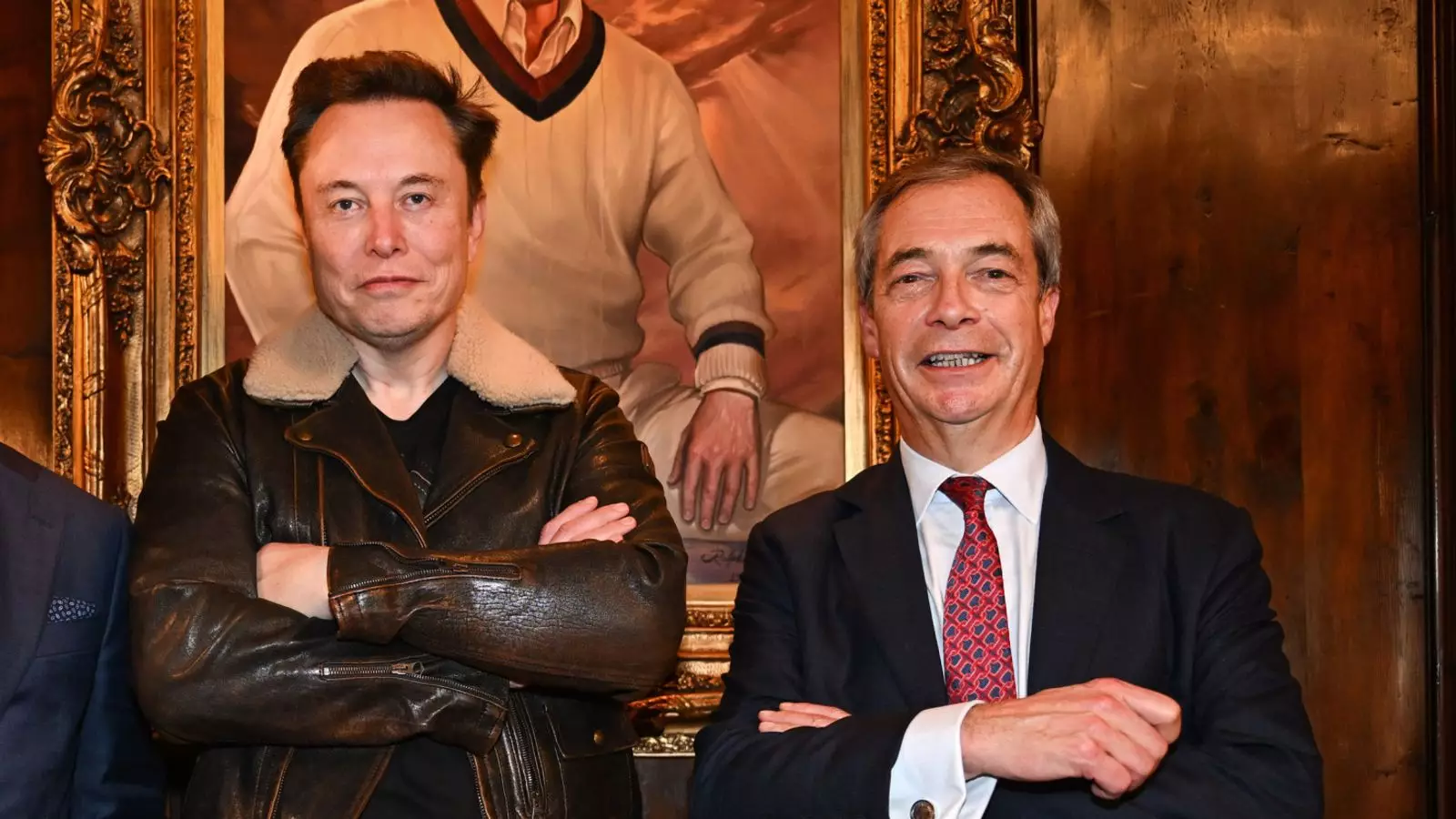The political landscape in the United Kingdom is presently navigating a turbulent intersection of trust, accountability, and finance. Recent proposals by government ministers to tighten restrictions on foreign donations to political parties underscore a significant concern regarding the influence of wealthy individuals and foreign interests on the democratic process. With nearly 77% of the UK public expressing discomfort with foreign contributions, the urgency to reform these outdated mechanisms is palpable. In an era where transparency is paramount, the need for a robust regulatory framework to mitigate foreign influence is non-negotiable.
Foreign Influence: A Double-Edged Sword
Foreign donations, particularly those from entities like tech billionaire Elon Musk, raise fundamental questions about the essence of democratic values and sovereignty. The proposed changes are not merely knee-jerk reactions to a potential $100 million donation to Reform UK; they reflect a broader anchor for political integrity that must not be neglected. When a single individual can inject such a staggering amount of cash into the UK political system, it runs contrary to the very notion of representative democracy, where the voices of the many, not the few, should hold sway.
Indeed, Musk’s potential contribution would dwarf the financial inputs of established British political party fundraisers, effectively overshadowing grassroots movements and policy debates. This propensity for wealth to commandeer the political discourse raises serious concerns about who really holds the reins of power in a so-called representative government.
Legislation: A Move Towards Transparency
The government’s intentions to tighten the laws surrounding political donations come as a welcome initiative, particularly in light of the recent revelations about the murky origins of political funding. A staggering statistic from Transparency International indicates that nearly £1 in every £10 contributed comes from sources that are either undisclosed or dubious. The forthcoming Elections Bill, which aims to close loopholes that permit foreign entities, marks a pivotal moment in the effort to restore public trust in political funding.
Government sources have emphasized that while the proposed changes could significantly limit donations from non-UK citizens, they are also considering extending due diligence checks for donations from unincorporated associations. Such measures are essential in ensuring that funding sources are transparent and accountable while safeguarding the democratic process from undue influence.
Public Sentiment and Political Accountability
It’s evident that public sentiment aligns heavily against foreign contributions to UK political parties. With only 7% of respondents supporting the ability of non-UK nationals to financially participate in British politics, it’s clear that citizens want assurance that their political landscape remains uninfluenced by external actors. This overwhelming stance is particularly resonant given the high stakes associated with elections — where every vote, every policy, and every party platform is shaped by the financial backing they receive.
Anything less than reform feels like a betrayal of democratic principles. After all, how can citizens trust their politicians when they are beholden to foreign interests that may have divergent goals from those of the electorate? This tension not only undermines faith in political institutions but also jeopardizes the very essence of what it means to be a participant in a democracy.
A Call for Progressive Change
As discussions unfold regarding the categorization of British companies and their financial capabilities in relation to political donations, it’s imperative to adopt a forward-thinking approach that looks beyond the immediate implications of Musk’s potential donation. Instead, this moment must be seized as an opportunity for progressive change that fortifies the democratic institution itself. The principles of accountability, transparency, and voter sovereignty must be at the forefront of any reform efforts.
Navigating the complexities of political funding is daunting but not insurmountable. What is required is the collective will of government officials, advocacy groups, and the public to devise a system where clean money can support clean politics. Ensuring that the UK doesn’t fall under the sway of billionaires and foreign influences is not merely desirable; it is essential for the health of democracy itself.


Leave a Reply